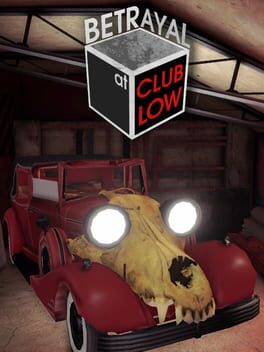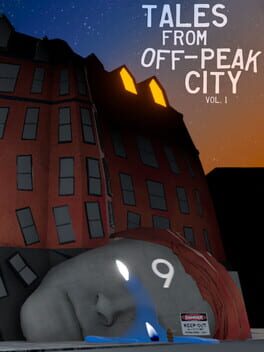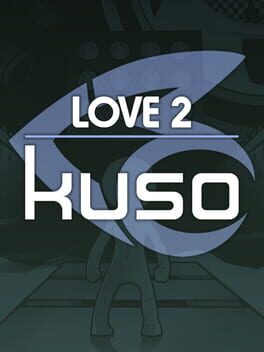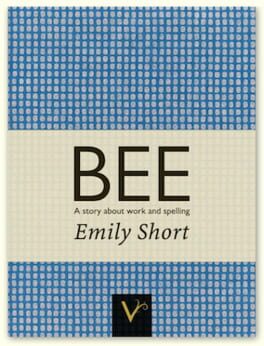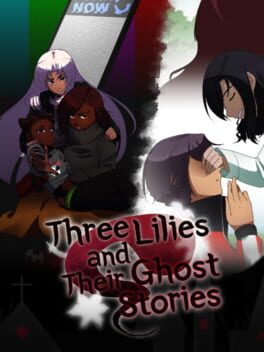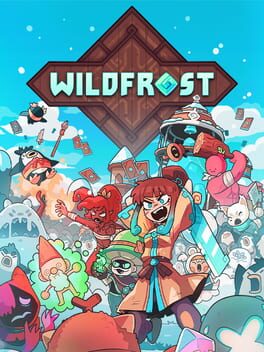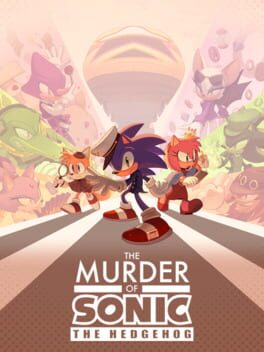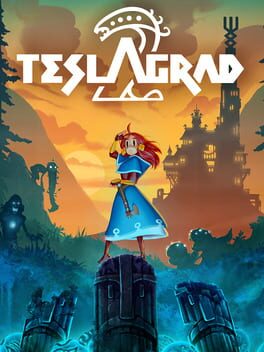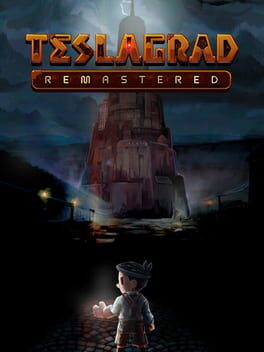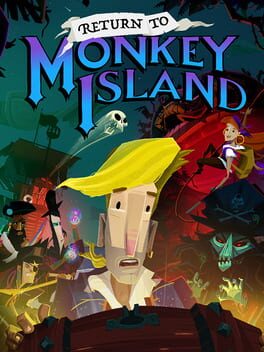lukebee
2022
Brilliant dice-rolling RPG infused with Cosmo D's trademark style. The way you level up or put together a build by customizing the individual faces of your dice is inspired, the off-kilter strangeness of the setting is fun as always, and snatching defeat from the jaws of victory by accidentally swapping my high dice roll for my opponent's low one is always hilarious.
2017
2014
2012
A lesbian ghost-story anthology that runs the gamut from spooky romance to sci-fi dystopian thriller. None of it ever gets as dark as their previous VN Soundless, which was genuinely a really upsetting and disturbing read, though I'd definitely still suggest minding the content warnings. I think my favorite story was either Suburb or City, but I enjoyed all three.
2023
Really fun roguelike deckbuilder with somewhat of a tactics bent to it (there's a lot of moving units around to control who takes incoming attacks or who your units target or what order your units attack in), and a very cool twist around how the final boss works. Kinda interesting seeing that a lot of people found it way too difficult, considering I won my first 3 runs in a row and then hit the true ending on run 5.
2020
2017
2023
A dramatically expanded sequel that marks something of a departure from its predecessor. Where the first game consisted almost entirely of magnetic attraction/repulsion platforming puzzles in pretty self-contained levels joined to a central tower, Teslagrad 2 makes one of its polarities an entirely optional ability, and instead adds other abilities to your arsenal that make the game more about momentum-based traversal through large, open environments. Having played Teslagrad Remastered and Teslagrad 2 back to back, I like them both but definitely prefer this one; the greater degree of freedom is much appreciated, and blazing across the map once you have the full toolkit at your disposal is incredibly fun. (I really need to look up some speedruns, I bet people have accomplished some crazy stuff with the moveset.) Still not a big fan of the boss fights in this one, but you can't win 'em all.
2023
I remembered enjoying Teslagrad back in the day, and yeah, it's still pretty good! Can't say I cared much for the boss fights, but flinging your character around with magnetic attraction and repulsion is a good time, and the remastered graphics look great. Really glad the game eventually marks the collectables on the map so I didn't have to rely on a walkthrough to get the true ending, though I did manage to find nearly all of them on my own before then.
2022
An incredible historical murder mystery narrative set in a 16th century abbey. Phenomenal lettering work, which feels like a strange thing to fixate on in a video game, but the way different characters' dialogue is presented in different scripts or print based on their occupation or background (or more accurately, your character's perception of them—there's at least one instance where the font changes when you learn that a character is more educated than previously thought) is some fantastic attention to detail, as are the occasional appearance of typos that are then crossed out and corrected, and references to Jesus/God that are filled in after the rest of the sentence as the writer switches to red ink. That attention to detail extends to the narrative as well, which does a great job laying out the rich social fabric of the abbey, from the monks to the peasants, and the slowly brewing class tensions between the different factions, and the story goes to some surprising and genuinely heartbreaking places.
Also, slight spoilers here, but I loved how the game refuses to let you off easy when it comes to solving the murders and accusing a suspect. This ain't Ace Attorney; the evidence is never decisive and the suspects don't break down and confess when confronted, so there's this awful lingering feeling of "what if I got it wrong?" that you just have to sit with and live with as your meddling costs people their lives, and I think that rules.
Also, slight spoilers here, but I loved how the game refuses to let you off easy when it comes to solving the murders and accusing a suspect. This ain't Ace Attorney; the evidence is never decisive and the suspects don't break down and confess when confronted, so there's this awful lingering feeling of "what if I got it wrong?" that you just have to sit with and live with as your meddling costs people their lives, and I think that rules.
2020
Never played a Monkey Island game before (they're slightly before my time) but I really enjoyed this. The jokes are funny, the puzzles are generally pretty good, and there's an interesting thread running through the narrative about nostalgia and trying to recapture your glory days—I was kinda reminded a bit of The Matrix: Resurrections, which was also a legacy sequel that's self-consciously meta about its position as a legacy sequel.
